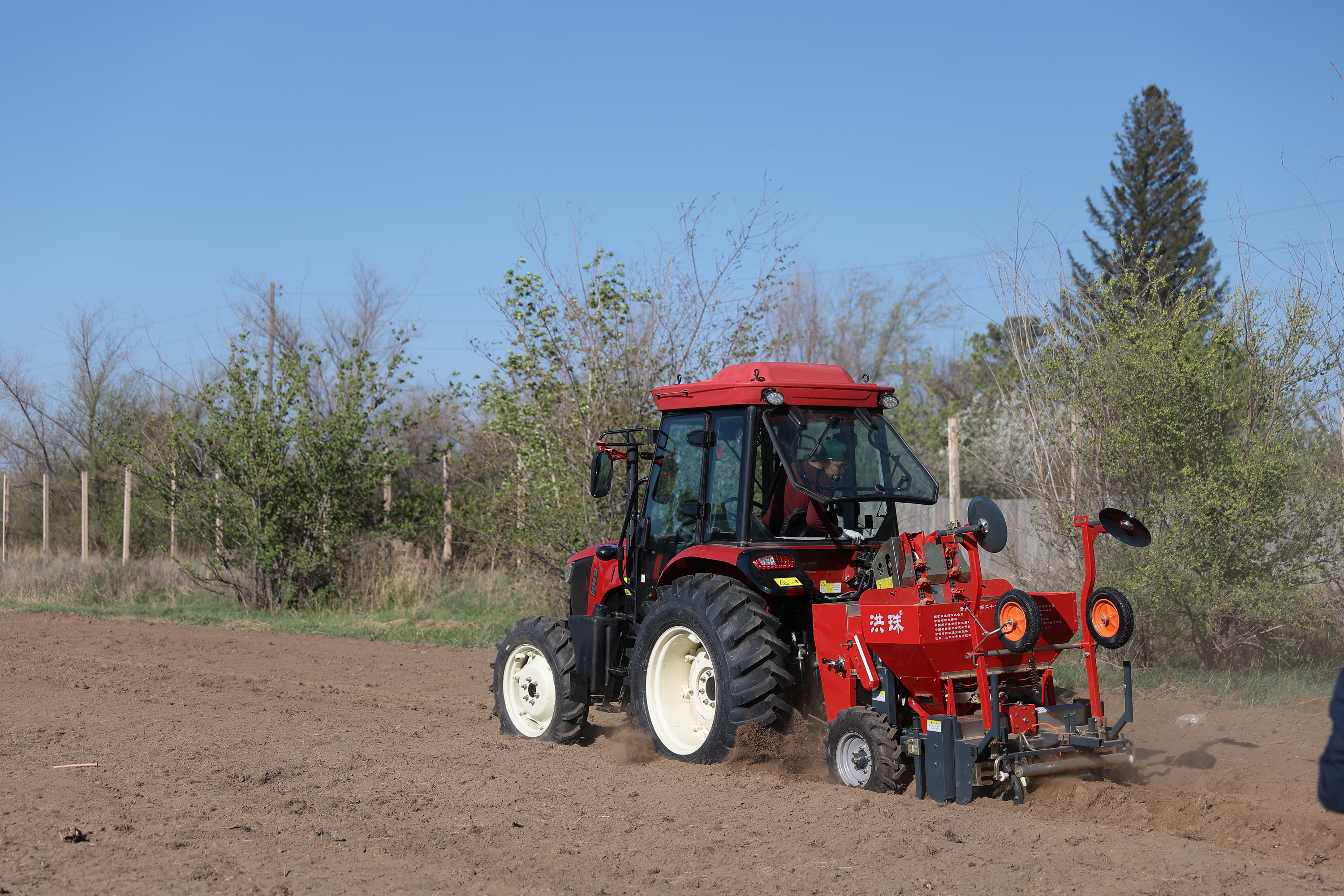At the experimental sites of the Agrobiolab of Shakarim University, in partnership with the Northwest A&F University of the People’s Republic of China, this year marks the beginning of planting potato varieties based on foreign technologies.
Thanks to a small Chinese potato planting machine, experimental planting has been greatly simplified. This machine allows for uniform seed planting while simultaneously applying fertilizer. This method not only reduces manual labor but also boosts productivity and improves crop quality.
Shakarim University scientists are implementing the project in collaboration with experts from the Chinese university. The main goal of the project is to adapt new high-yield, disease-resistant potato varieties to local conditions and introduce innovative technologies into the agricultural sector to ensure food security.
Adilet Sugirbay, head of the Center for Innovation Development at Shakarim University, professor of agriculture, PhD, and Science professor, explains:
“We are planting five types of elite potato varieties in the agrobiolab. During planting, ‘Biohumus’ organic fertilizer derived from California red worms is immediately applied to the soil. This fertilizer enhances soil fertility and positively impacts plant growth. We use Chinese standards because Kazakhstan and China lie in the same geographical belt, and we want to see how these technologies perform in our region. This experiment helps define the direction for the development of technologies used in our agronomy sector. In addition, we are developing a domestic potato planting machine that meets Kazakhstan’s standards. Our goal is to compare the performance of the Chinese-standard machine with the one we develop, evaluate their effectiveness, and integrate the best of both systems to achieve optimal results.”
As Adilet Sugirbay notes, a key focus of the project is to develop the agricultural sector through the introduction of innovative methods suited to local conditions. Furthermore, there are plans to expand scientific research and experimentation to improve the efficiency of potato cultivation technologies and equipment.
It’s worth noting that last year, university scientists, in collaboration with their Chinese counterparts, began a scientific project aimed at adapting and testing the resilience of foreign-selected wheat and rapeseed varieties to the natural conditions of the Abai region.

